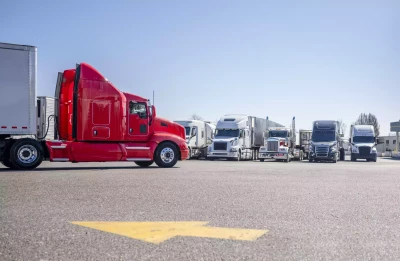Balancing Loyalty and Growth: Carrier Challenges in a Changing Industry
November 26, 2024
 The transportation industry is at a pivotal moment, shaped by economic instability, inflation, and an ever-evolving marketplace. Spot market volatility, unsustainable pricing in both spot and contract rates, and broader economic pressures leave many uncertain about what the future holds. Despite these challenges, there are opportunities for adaptation and growth. By focusing on loyalty, strategic partnerships, and innovative solutions, companies can navigate this period of volatility effectively.
The transportation industry is at a pivotal moment, shaped by economic instability, inflation, and an ever-evolving marketplace. Spot market volatility, unsustainable pricing in both spot and contract rates, and broader economic pressures leave many uncertain about what the future holds. Despite these challenges, there are opportunities for adaptation and growth. By focusing on loyalty, strategic partnerships, and innovative solutions, companies can navigate this period of volatility effectively.
As the transportation landscape evolves, fostering strong relationships with carriers is crucial. The loyalty of long-term partners has proven invaluable, particularly during periods of upheaval like the pandemic. Carriers who have consistently delivered reliable service are an essential asset, and retaining them is a priority. At the same time, expanding the carrier network to accommodate growing business needs is vital.
“We definitely want to keep those carriers that have been with us through the pandemic and prior to that, carriers that we can count on no matter what,” says Christine O’Loughlin, Logistics Sales Manager at JB Group. “But we also want to bring in some more people, because our business has grown.”
The industry has seen attrition among smaller carriers due to rising costs and operational challenges, including the high cost of equipment and insurance. To maintain stability, companies must balance supporting loyal carriers with welcoming new partners to ensure adequate capacity and service quality.
The transportation workforce is also experiencing significant shifts. Historically, drivers were predominantly older, with the average age once hovering near 57. Today, that number has dropped into the upper 40s, reflecting an influx of younger drivers. This shift brings both opportunities and challenges.
From shifting demographics to a newfound emphasis on RFPs, the transport field is in a period of significant change. Find tips to stay ahead of the trends in the latest episode of the Stay In Your Lane Podcast.
While experience is invaluable, dismissing younger drivers can limit the industry’s potential. Companies must embrace diversity in their hiring practices, recognizing that younger workers can bring fresh perspectives and adaptability. Training programs and mentorship initiatives can help bridge the experience gap and cultivate a new generation of skilled drivers.
In response to market volatility, the traditional annual request for proposal (RFP) process is no longer sufficient for many companies. Shortened contract cycles—sometimes as brief as 90 days—allow businesses to stay agile and adapt to market fluctuations.
Frequent RFPs can help companies reassess pricing, secure competitive rates, and maintain reliable service. While some companies stick to semi-annual RFPs, others adapt their timelines based on specific needs, such as adding new lanes or responding to client demands.
“Every six months is probably a good gauge [for running RFPs],” says O’Loughlin. “I don’t think you really need to do it more than that. However, I do hear some people saying that they’re doing them more often.”
The challenges of regional and long-haul trucking highlight the need for operational flexibility. Long-haul drivers often benefit from more consistent schedules, allowing for better rest and recovery. In contrast, regional drivers face tighter timelines and less predictable hours, which can take a greater toll on their well-being.
For companies managing fleets, understanding these dynamics is critical. Providing support systems, like flexible scheduling and robust benefits, can enhance driver satisfaction and retention, regardless of the distances they travel.
While the transportation industry faces numerous hurdles, a commitment to adaptability, innovation, and strong relationships can pave the way for future success. By addressing workforce changes, rethinking traditional processes, and exploring new operational strategies, companies can weather the storm and emerge stronger in an ever-changing market.
Stability may seem elusive, but by embracing change and focusing on what matters most—people, partnerships, and adaptability—the industry can not only survive but thrive in the years to come. For a versatile and reliable partner for all your 3PL needs, count on the experienced professionals at Triple T Transport. Contact us today to learn more about our full range of services.














